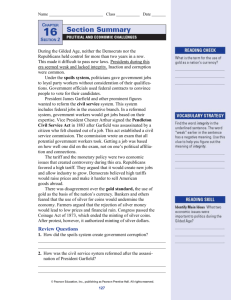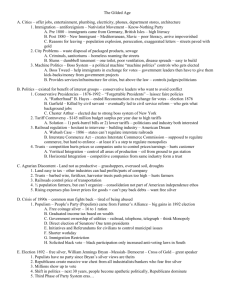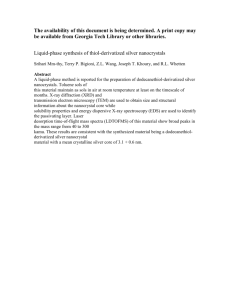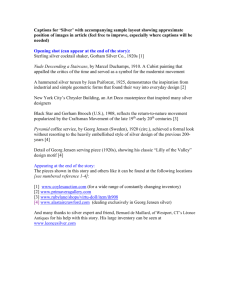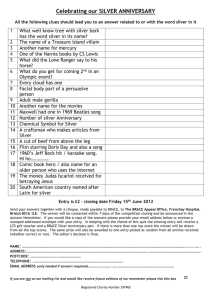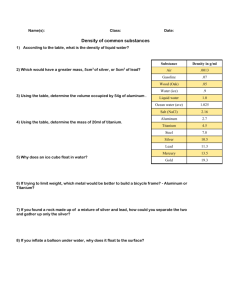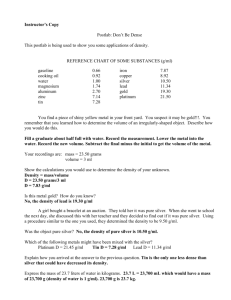- GlobalZona.com
advertisement
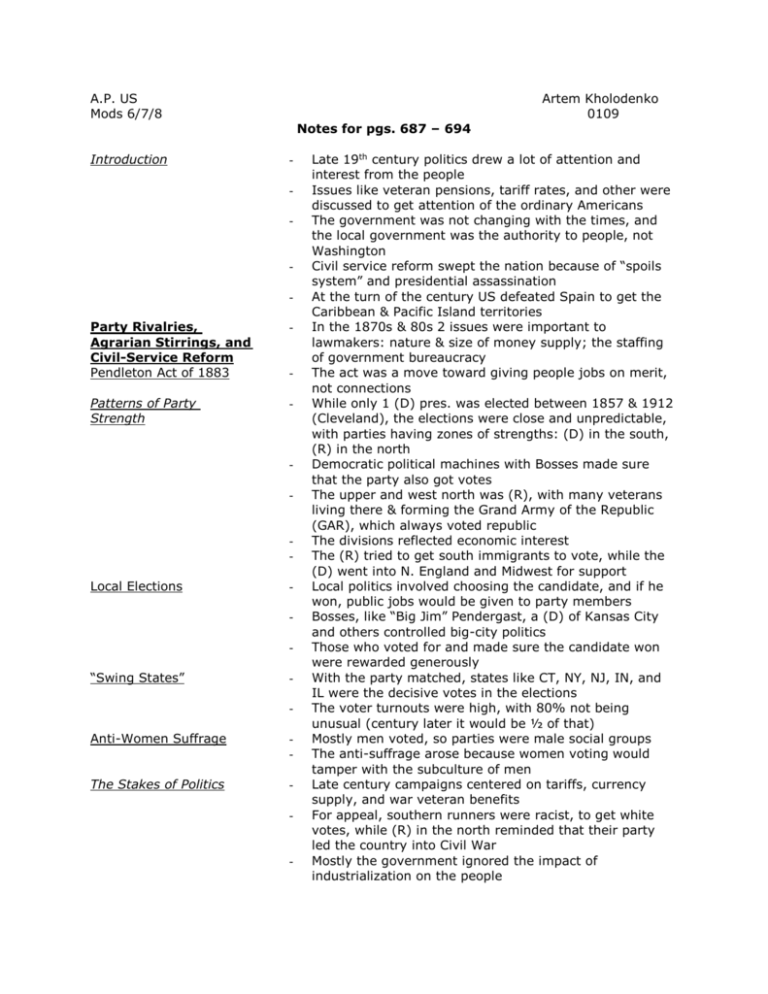
A.P. US Mods 6/7/8 Artem Kholodenko 0109 Notes for pgs. 687 – 694 Introduction - Party Rivalries, Agrarian Stirrings, and Civil-Service Reform Pendleton Act of 1883 - Patterns of Party Strength - - - Local Elections - “Swing States” - Anti-Women Suffrage - The Stakes of Politics - - Late 19th century politics drew a lot of attention and interest from the people Issues like veteran pensions, tariff rates, and other were discussed to get attention of the ordinary Americans The government was not changing with the times, and the local government was the authority to people, not Washington Civil service reform swept the nation because of “spoils system” and presidential assassination At the turn of the century US defeated Spain to get the Caribbean & Pacific Island territories In the 1870s & 80s 2 issues were important to lawmakers: nature & size of money supply; the staffing of government bureaucracy The act was a move toward giving people jobs on merit, not connections While only 1 (D) pres. was elected between 1857 & 1912 (Cleveland), the elections were close and unpredictable, with parties having zones of strengths: (D) in the south, (R) in the north Democratic political machines with Bosses made sure that the party also got votes The upper and west north was (R), with many veterans living there & forming the Grand Army of the Republic (GAR), which always voted republic The divisions reflected economic interest The (R) tried to get south immigrants to vote, while the (D) went into N. England and Midwest for support Local politics involved choosing the candidate, and if he won, public jobs would be given to party members Bosses, like “Big Jim” Pendergast, a (D) of Kansas City and others controlled big-city politics Those who voted for and made sure the candidate won were rewarded generously With the party matched, states like CT, NY, NJ, IN, and IL were the decisive votes in the elections The voter turnouts were high, with 80% not being unusual (century later it would be ½ of that) Mostly men voted, so parties were male social groups The anti-suffrage arose because women voting would tamper with the subculture of men Late century campaigns centered on tariffs, currency supply, and war veteran benefits For appeal, southern runners were racist, to get white votes, while (R) in the north reminded that their party led the country into Civil War Mostly the government ignored the impact of industrialization on the people - Economic Involvement - Schooling - Gilded Age Politics - Hayes in the White House - Greenbacks and Silver - Different $$$ Ideas - Coinage Act of 1873 - Bland-Allison Act of 1878 - The reason for that is because the presidency had become a diminished position because of the Johnson, Grant, and Hayes years In the legislature branch senators guarded their turf without caring for the national interest The parties were suited to win elections, not govern By some views, the government was not suppose to regulate, but to promote the industries, and when the people did turn to it for help, they went to local or state governments The local and state governments also fought for control and many sates could change taxes and other laws without the state approval In NYC Protestants and Catholics fought over tax support to parochial schools and in 1889 the native-born (R) legislators passed a law requiring all children to go to English language schools This assaulted the Catholic and Lutheran schools taught in German, Swedish, or Norwegian These politics were made of individuals, groups, and parties with different interests in city halls, statehouses and Washington D.C. Appealing, but pliable men were chosen to take the presidential office during these local-government years Rutherford B. Hayes was perfect, being a lawyer and wounded general form the Civil war He restored the office after the Grant scandals, in part with the help of his wife, Lucy Hayes was a moderate drinker and recognized the political strengths of temperance movements Because of his wife’s support of the Woman’s Christian Temperance Union, he banished alcohol from the White House, but not everyone welcomed that In the 1870s the issue of adequate money supply was important, with the prewar era seeing disorder with many different banks and banknotes A national currency was needed, but only gold and silver were universal A clash of ideas took place, with business people and economists believing that a strictly limited supply was needed in the country Debtors and southern & western farmers thought an expanded supply would better suit the USA The electoral era was filled with the money issue in the 1870s with the creation of the Greenback Party Congress ordered the US mint to stop making silver coins because the silver supply was not enough, but the discoveries of silver in Nevada increased the supply, and same debtor groups wanted silver coins again Passed over Hayes’s veto, it required $2-$4mil of silver bought and coined into dollars But the coining was sabotaged by conservatives that dominated the treasury, who bought and made the coins, Sherman Silver Purchase Act of 1890 - The Spoils System - Stalwarts & the HalfBreeds - - Civil Service Reform - - Assassination of Garfield - - Pendleton Civil Service Act of 1883 - - - but did not distribute the money It instructed the treasury to buy 4.5 ounces of silver monthly and to issue notes redeemable in gold or silver, increasing the money supply slightly Politicians rewarded those who supported their campaigns by giving those public positions if they won The bad thing was that unqualified people often filled the roles of cabinet posts and ambassadorships, etc. The 2 factions of (R) party were greatly in a split in 1870s, arguing about who would control the party machinery and distribute jobs The Stalwarts were led by Roscoe Conking of NY and Half-Breeds led by Senator James G. Blaine of Maine As the government grew more complex, a professional civil service became essential In 1877, when Hayes launched a NYC investigation, 2 men refused to cooperate, forcing their positions to be resigned (Chester A. Arthur, and other who had ties to Conking) At a (R) convention in 1880, when neither of the factions could win, James A. Garfield was chosen as a dark horse because he had connections to the Half-Breeds, and Chester A. Arthur was made his running mate The (D) nominated Winfield Scott Hancock and Greenbacks, James B. Weaver Garfield won by under 40,000 votes (9.2mil cast) and Weaver trailed behind with 308,578 Garfield appointed James G. Blaine, Half-Breed leader as secretary of state and named a Cockling opponent as NYC customs collector, the Stalwart leaver Roscoe Cockling tried a backfiring maneuver Along with Thomas Platt “Me Too” he resigned from the senate, hoping the NY legislature would reelect him, but another senator was elected, ending his carrier On July 2, 1881, as Garfield was walking through Washington railway station a man pulled out a pistol and shot him twice – he died on Sep. 19, 1881 The assassin was Charles J. Guiteau, who thought that Stalwarts would give his a good job and was insane, yet still tried and hung Chester Arthur came to power with his corruption The act set-up a civil service commission to prepare competitive examinations and establish standards of merit for a variety of federal jobs; political candidates were forbidden to solicit contributions from government workers At 1st covering 12% of the federal employees it expanded marking an important step for civil service Arthur proved to be an okay president, showing independence in the office and not letting Conkling take control Frustrated with the (R), House elected Grover Cleveland
